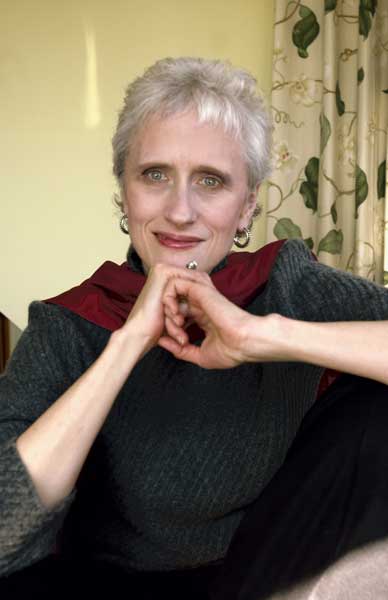Passed/Failed: An education in the life of author Sara Paretsky
'We went at our own pace'

Your support helps us to tell the story
From reproductive rights to climate change to Big Tech, The Independent is on the ground when the story is developing. Whether it's investigating the financials of Elon Musk's pro-Trump PAC or producing our latest documentary, 'The A Word', which shines a light on the American women fighting for reproductive rights, we know how important it is to parse out the facts from the messaging.
At such a critical moment in US history, we need reporters on the ground. Your donation allows us to keep sending journalists to speak to both sides of the story.
The Independent is trusted by Americans across the entire political spectrum. And unlike many other quality news outlets, we choose not to lock Americans out of our reporting and analysis with paywalls. We believe quality journalism should be available to everyone, paid for by those who can afford it.
Your support makes all the difference.Sara Paretsky, 62, has written 14 novels in her V I Warshawski series, of which Hardball is the latest. Deadlock was filmed with Kathleen Turner in the title role and Blacklist won the British Crime Writers' Association's Gold Dagger award. Her other books include her memoir, Writing in an Age of Silence.
I was quite a loner child. I think I grew up in the woods raised by wolves and didn't know how to play with other children. Mrs Watkins, my kindergarten teacher at Cordley School in Lawrence, Kansas, on whom I had a tremendous crush, would send me to play house with the other girls and I would sit there waiting for playtime to be over.
My next memorable teacher was when I was nine. Patti Shepherd liked my stories so much that when school was over for the summer, she encouraged me to come over to her house and read them.
When I was 11, my parents bought an old farmhouse five miles from Lawrence and I spent two years at Kaw Valley District 95. It was so romantic, because I had grown up reading stories about two-room pioneer schools in completely rural areas and this was a two-room country school with Grades 1 to 4 in one room and Grades 5 to 8 in the other. We were so fortunate with our two dedicated teachers. There was a kid in our class with a severe mental handicap. Every day, he had to go through the alphabet and he'd forget; he'd get to the letter G and have a nosebleed and Cherry McCabria would wrap him in a blanket.
There were two of us in my grade and we went at our own pace. Everything put for me to do was too easy and I finished three years of schooling in two years and was sent at 13 to Lawrence High School. This felt like work. The teaching was better than average because it was a university town (my father was in the bacteriology department) and a lot of people were teaching while doing university degrees. One of the very good teachers was fired because he was doing a PhD in Russian history and the school board thought only a Communist would be interested in that.
I got my first job when I was 13, washing test tubes, beakers and Petri dishes in a university laboratory. I worked for a guy growing bacteria that caused spinal meningitis: I could have been dead long ago! I knew that if I was going to university, I would have to earn the money – and my parents would not permit me to leave Kansas. The feeling in the family was that girls were going to get married and educating them was a waste of funds.
The first two years at the University of Kansas were general courses and I concentrated on political science for my next two years. I moved to Chicago and did a PhD in the roots of American Christian fundamentalism. It took nine years; I had a scholarship for three years and then got a full-time job. The head of one faculty told students that women could parrot things back but weren't capable of original work. (At Washington University, a lecturer asked all the women in class to cross their legs and then said, "Good: now that the gates to hell are shut, we can proceed.") Because of my department's relentless misogyny, I was the only one of 13 women starting the US history programme who returned for our second year.
I was determined my brothers were not smarter, though my elder brother is smarter. He speaks 11 languages. He used to teach me everything he knew until he got to fractions, when we parted company.
Join our commenting forum
Join thought-provoking conversations, follow other Independent readers and see their replies
Comments